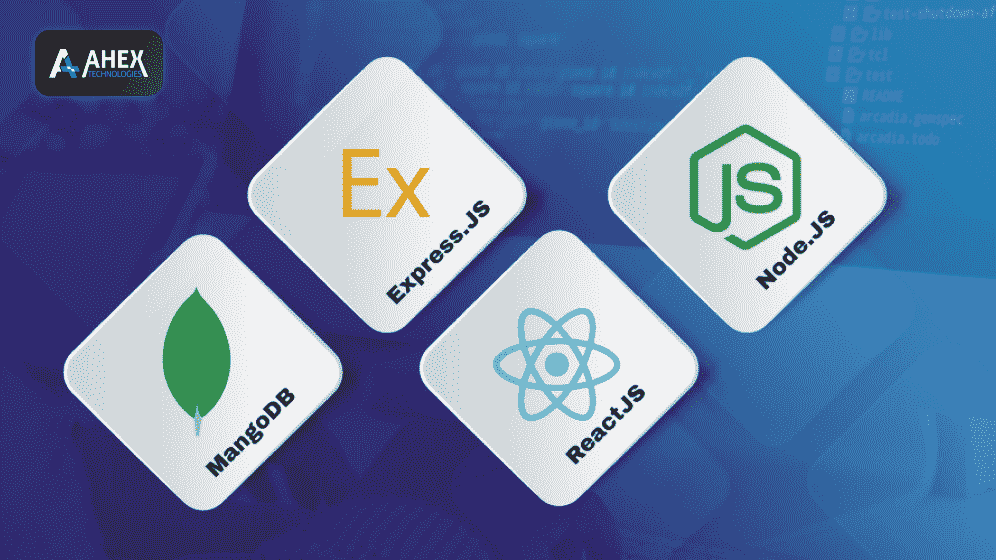
In today’s digital age, enterprises are constantly seeking to enhance their operations and deliver exceptional user experiences to their customers. The MERN stack (MongoDB, Express.js, React, and Node.js) has emerged as a powerful and efficient technology stack for building robust and scalable applications. In this article, we will explore how MERN development empowers enterprises to develop cutting-edge applications and stay ahead in the competitive market.
Table of Contents
- Introduction to MERN Development
- Leveraging MongoDB for Enterprise-level Data Management
- Building Feature-rich and Scalable Backend with Express.js
- Delivering Intuitive User Interfaces with React
- Harnessing the Power of Node.js for High-performance Applications
- Integrating the Components Seamlessly for Enterprise Solutions
- Implementing Enterprise-level Testing and Quality Assurance
- Ensuring Security and Compliance for Enterprise Applications
- Optimizing Performance for Seamless User Experience
- Leveraging MERN Ecosystem for Enhanced Functionality
- Conclusion
Introduction to MERN Development
MERN development is a full-stack JavaScript approach that utilizes MongoDB as the NoSQL database, Express.js as the backend framework, React for front-end user interfaces, and Node.js as the server-side runtime environment. This technology stack enables enterprises to build end-to-end applications using a unified language, making development more streamlined and efficient.
Leveraging MongoDB for Enterprise-level Data Management
In enterprise applications, data management is of utmost importance. MongoDB, a flexible and scalable NoSQL database, empowers enterprises to handle large volumes of data with ease. With support for complex queries, indexing, and horizontal scaling, MongoDB ensures efficient data storage, retrieval, and management for enterprise-level applications.
Building Feature-rich and Scalable Backend with Express.js
Express.js, a minimalist and robust backend framework, is well-suited for building feature-rich and scalable enterprise applications. Its extensive middleware support enables enterprises to handle authentication, caching, and request processing efficiently. Express.js offers flexibility and allows for the seamless integration of various services, making it an ideal choice for enterprise-level backend development.
Delivering Intuitive User Interfaces with React
React, a popular front-end JavaScript library, allows enterprises to create dynamic and intuitive user interfaces for their applications. Its component-based architecture promotes code reusability and maintainability, making it easier for enterprises to develop and maintain complex user interfaces. React’s virtual DOM ensures efficient rendering, enhancing the performance of enterprise applications.
Harnessing the Power of Node.js for High-performance Applications
Node.js provides enterprises with a high-performance server-side runtime environment. Its event-driven, non-blocking I/O architecture enables enterprises to handle concurrent requests efficiently, making it suitable for building high-performance applications. Node.js empowers enterprises to run server-side code using JavaScript, ensuring consistency across the entire application stack.
Integrating the Components Seamlessly for Enterprise Solutions
The integration of MongoDB, Express.js, React, and Node.js in the MERN stack is seamless, providing a cohesive environment for enterprise application development. Enterprises can build scalable and modular applications by connecting the components effectively. With proper integration, enterprises can create flexible solutions that adapt to their evolving needs.
Implementing Enterprise-level Testing and Quality Assurance
For enterprise applications, ensuring quality and reliability is crucial. Implement automated testing strategies, including unit tests, integration tests, and end-to-end tests, to verify the functionality and stability of the application. Rigorous quality assurance measures ensure that the application meets the high standards expected in enterprise-level deployments.
Ensuring Security and Compliance for Enterprise Applications
Security and compliance are paramount for enterprises, especially when handling sensitive data. Implement robust authentication and authorization mechanisms to protect user data and prevent unauthorized access. Ensure compliance with relevant regulations and industry standards, such as GDPR or HIPAA, to maintain data privacy and security.
Optimizing Performance for Seamless User Experience
Performance optimization is vital for delivering a seamless user experience. Employ techniques such as code minification, caching, and load balancing to enhance application performance. Monitor application performance regularly, identify bottlenecks, and optimize critical areas to ensure optimal performance.
Leveraging MERN Ecosystem for Enhanced Functionality
The MERN ecosystem offers a wide range of libraries, frameworks, and tools that enhance the functionality and productivity of enterprise applications. Leverage popular libraries like Redux for state management, GraphQL for efficient data querying, and Passport.js for robust authentication. These tools enable enterprises to build feature-rich applications efficiently.
Conclusion
MERN development empowers enterprises to build robust, scalable, and high-performance applications that meet the demands of the modern digital landscape. By harnessing the capabilities of MongoDB, Express.js, React, and Node.js, enterprises can deliver cutting-edge solutions to their customers and stay ahead of the competition. With seamless integration, rigorous testing, security measures, and performance optimization, MERN development ensures the success of enterprise-level applications. Embrace the power of the MERN stack, explore its ecosystem, and empower your enterprise with next-level application development.







